Related Research Articles

The Liberal Party was one of the two major political parties in the United Kingdom with the opposing Conservative Party in the 19th and early 20th centuries. The party arose from an alliance of Whigs and free trade–supporting Peelites and the reformist Radicals in the 1850s. By the end of the 19th century, it had formed four governments under William Gladstone. Despite being divided over the issue of Irish Home Rule, the party returned to government in 1905 and then won a landslide victory in the following year's general election.
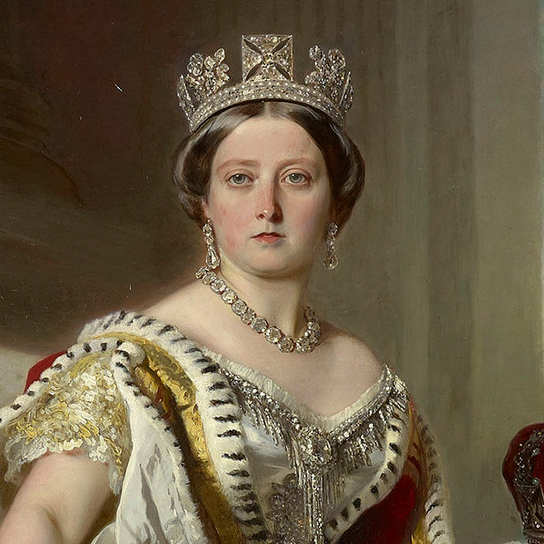
In the history of the United Kingdom, the Victorian era was the period of Queen Victoria's reign, from 20 June 1837 until her death on 22 January 1901. The era followed the Georgian period and preceded the Edwardian period, and its later half overlaps with the first part of the Belle Époque era of Continental Europe. Morally and politically, this period began with the passage of the Reform Act 1832. There was a strong religious drive for higher moral standards led by the nonconformist churches, such as the Methodists, and the Evangelical wing of the established Church of England. Ideologically, the Victorian era witnessed resistance to the rationalism that defined the Georgian period and an increasing turn towards romanticism and even mysticism with regard to religion, social values, and arts. Technologically, this era saw a staggering amount of innovations that proved key to Britain's power and prosperity. Doctors started moving away from tradition and mysticism towards a science-based approach; modern medicine saw the light of day thanks to the adoption of the germ theory of disease and pioneering research in epidemiology. Multiple studies suggest that on the per-capita basis, the numbers of significant innovations in science and technology and of scientific geniuses peaked during the Victorian era and have been on the decline ever since.

The Edwardian era or Edwardian period of British history spanned the reign of King Edward VII, 1901 to 1910, and is sometimes expanded to the start of the First World War. The death of Queen Victoria in January 1901 marked the end of the Victorian era. Her son and successor, Edward VII, was already the leader of a fashionable elite that set a style influenced by the art and fashions of continental Europe. Samuel Hynes described the Edwardian era as a "leisurely time when women wore picture hats and did not vote, when the rich were not ashamed to live conspicuously, and the sun really never set on the British flag."
The Liberal Unionist Party was a British political party that was formed in 1886 by a faction that broke away from the Liberal Party. Led by Lord Hartington and Joseph Chamberlain, the party established a political alliance with the Conservative Party in opposition to Irish Home Rule. The two parties formed the ten-year-long coalition Unionist Government 1895–1905 but kept separate political funds and their own party organisations until a complete merger between the Liberal Unionist and the Conservative parties was agreed to in May 1912.

In English church history, a Nonconformist is a Protestant Christian who did not "conform" to the governance and usages of the established church, the Church of England. Use of the term in England was precipitated after the Restoration of the Stuart monarchy in 1660, when the Act of Uniformity 1662 renewed the opponents of reform within the established church. By the late 19th century the term specifically included other Reformed Christians, plus the Baptists, Brethren, Methodists and Quakers. The English Dissenters such as the Puritans who violated the Act of Uniformity 1559 – typically by practising radical, sometimes separatist, dissent – were retrospectively labelled as Nonconformists.

The United Kingdom of Great Britain and Ireland was a sovereign state that existed between 1801 and 1922. It was established by the Acts of Union 1800, which merged the kingdoms of Great Britain and Ireland into a unified state. The establishment of the Irish Free State in 1922 led to the remainder later being renamed the United Kingdom of Great Britain and Northern Ireland in 1927.

The University of East Anglia (UEA) is a public research university in Norwich, England. Established in 1963 on a 320-acre (130-hectare) campus west of the city centre, the university has four faculties and 26 schools of study. The annual income of the institution for 2016–17 was £273.7 million, of which £35.6 million was from research grants and contracts, with an expenditure of £262.6 million, and has an acceptance rate of around 20%.

The 1886 United Kingdom general election took place from 1 to 27 July 1886, following the defeat of the Government of Ireland Bill 1886. It resulted in a major reversal of the results of the 1885 election as the Conservatives, led by Lord Salisbury, were joined in an electoral pact with the breakaway Unionist wing of the Liberals led by Lord Hartington and Joseph Chamberlain. The new Liberal Unionist party gave the Conservatives their parliamentary majority but did not join them in a formal coalition.
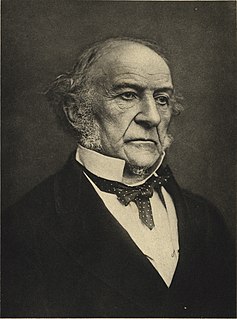
The 1885 United Kingdom general election was held from 24 November to 18 December 1885. This was the first general election after an extension of the franchise and redistribution of seats. For the first time a majority of adult males could vote and most constituencies by law returned a single member to Parliament fulfilling one of the ideals of Chartism to provide direct single-member, single-electorate accountability. It saw the Liberals, led by William Gladstone, win the most seats, but not an overall majority. As the Irish Nationalists held the balance of power between them and the Conservatives who sat with an increasing number of allied Unionist MPs, this exacerbated divisions within the Liberals over Irish Home Rule and led to a Liberal split and another general election the following year.
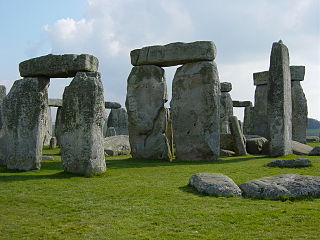
The British Isles have witnessed intermittent periods of competition and cooperation between the people that occupy the various parts of Great Britain, the Isle of Man, Ireland, the Bailiwick of Guernsey, the Bailiwick of Jersey and the smaller adjacent islands.
In the United Kingdom, the word liberalism can have any of several meanings. Scholars use the term to refer to classical liberalism; the term also can mean economic liberalism, social liberalism or political liberalism; it can simply refer to the politics of the Liberal Democrat party; it can occasionally have the imported American meaning, however, the derogatory connotation is much weaker in the UK than in the US, and social liberals from both the left and right wing continue to use liberal and illiberal to describe themselves and their opponents, respectively.

Carlisle is a constituency represented in the House of Commons of the UK Parliament since 2010 by John Stevenson of the Conservative Party.

The City of Chester is a constituency represented in the House of Commons of the UK Parliament since 2015 by Chris Matheson of the Labour Party.
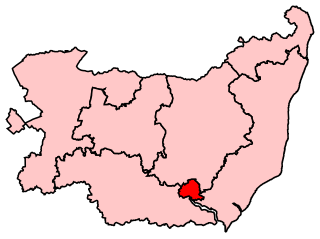
Ipswich is a constituency represented in the House of Commons of the UK Parliament since December 2019 by Tom Hunt of the Conservative Party.
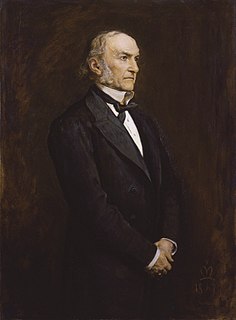
Gladstonian liberalism is a political doctrine named after the British Victorian Prime Minister and leader of the Liberal Party, William Ewart Gladstone. Gladstonian liberalism consisted of limited government expenditure and low taxation whilst making sure government had balanced budgets and the classical liberal stress on self-help and freedom of choice. Gladstonian liberalism also emphasised free trade, little government intervention in the economy and equality of opportunity through institutional reform. It is referred to as laissez-faire or classical liberalism in the United Kingdom and is often compared to Thatcherism.

William Ewart Gladstone was the Liberal prime minister of the United Kingdom of Great Britain and Ireland on four separate occasions between 1868 and 1894. He was noted for his moralistic leadership and his emphasis on world peace, economical budgets, political reform and efforts to resolve the Irish question. Gladstone saw himself as a national leader driven by a political and almost religious mission, which he tried to validate through elections and dramatic appeals to the public conscience. His approach sometimes divided the Liberal Party, which he dominated for three decades. Finally Gladstone split his party on the issue of Irish Home Rule, which he saw as mandated by the true public interest regardless of the political cost.
Michael Bentley is an English historian of British politics in the nineteenth and early twentieth centuries. Boyd Hilton has called Bentley's Politics Without Democracy 1815–1914 "a wonderfully 'inside' account of life at the top", whilst K. Theodore Hoppen claims the book "provides an interesting study of attitudes".
James Frederick "Fred" Henderson was an English socialist writer and journalist, and a Labour Party politician.
The Nonconformist conscience was the moralistic influence of the Nonconformist churches in British politics in the 19th and early 20th centuries.

History of women in the United Kingdom covers the social, cultural and political roles of women in Britain over the last two millennia.
References
- ↑ "Research - UEA". www.uea.ac.uk.